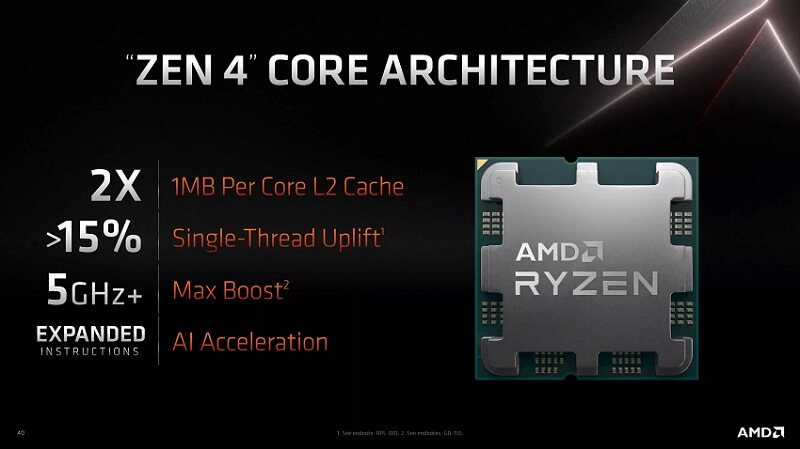Intel looks to be the brand to pick when choosing your next CPU. 13th-generation Raptor Lake processors are winning in the always-so-wanky benchmarks war against Ryzen 7000, and the overall user figures reflect this.
AMD’s highly-anticipated Ryzen 7000 series CPUs are in the wild but are struggling to gain market traction. A 15% faster average performance than Ryzen 5000, a new 5nm process, a beefier cache, and higher clock speeds are not enough to fight Intel’s recent resurgence.

For the second year in a row, Team Blue is coming out on top in raw performance and value for money with their 13th-gen (code name: Raptor Lake) processors.
In head-to-head comparisons, Intel’s 13th gen CPUs are averaging 10-13% better numbers than their Ryzen 7000 equivalents, driven by a big bump in core/thread count and clock rates. The top-of-the-range 13900K sports an insane 24 cores/32 threads and a 5.8Ghz boost clock.
If you care about such things, you’ll be disappointed by the lack of power efficiency. With great power comes great power consumption, as Batman once said. Intel’s range-toppers have flatlined around an already hungry 125 TDP, nothing compared to AMD’s flagship 7900x pulling an eye-watering 170 watts! No saving the planet this year, then.
Ryzen 7000 chips are running so hot (north of 95 degrees) that pasty nerds worldwide are worried about their precious rigs melting before their eyes. AMD claims it’s just the new normal, and we hope they’re right.
Assuming you’re not an idiot – or AMD fanboy – which Intel CPU should you choose?
The sweet spot right now is the 13600K. It offers excellent value at £340 (just £20 more than the hastily discounted 7600x) while crushing the benchmarks in gaming and productivity tasks. It averages 5% faster than last-gens flagship 12900K and is 10% faster than the AMD equivalent.

If you are determined to stick with AMD, you must spend a bit more cash. Despite the recent price drop, Ryzen 7000 CPUs are only compatible with DDR5 motherboards, and DDR5 is twice the price of DDR4. You’ll also have to pony up for an X670 motherboard, which costs £300+ right now. Ouch!
A cheaper B650 chipset will be available soon, but until then, you’ll spend at least £200 more on your build.
RDNA 3 to the rescue?
It’s not all bad on the AMD front, as the promising new RDNA 3 GPUs are just around the corner. Could this provide some secret sauce for those sticking to entirely AMD builds? Some SmartShift technology for desktop, perhaps?
It’s unlikely, as the number of component combinations on a custom PC would wreck compatibility. But at least we can dream.
But it’s not all bad, as last-gens Ryzen 5800X3D, which utilises AMD’s exciting 3D V-cache tech, could be the AMD chip for you. Its gaming performance can be outstanding, for the most part, but it does worse in desktop apps due to lower clock speeds. With its recent price drop, it outsells all of Intel and AMD’s latest CPUs.
2023 is your value bet
For the budget-conscious, you’re best waiting for Intel’s 13400F. It will likely offer most of the gaming performance of its bigger siblings at roughly half the cost, judging by previous generations.
You’ll be sacrificing productivity performance, but only snooty content creators will give a crap about that.
If you’re determined to upgrade now – providing AMD doesn’t cut prices further – you’re best off grabbing a chip from Team Blue. Who would have said THAT 2 years ago…







